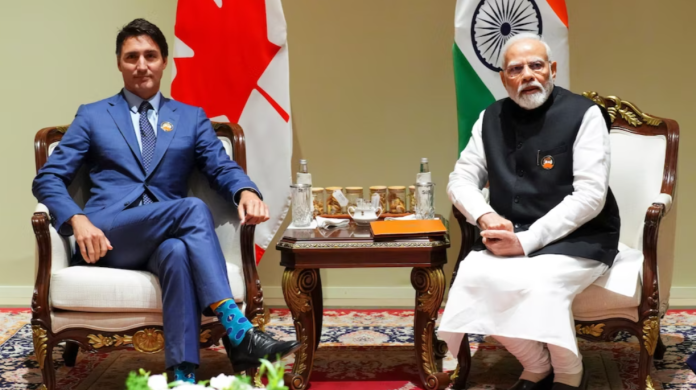Canada withdrew 41 diplomats following allegations of Indian involvement in the killing of Canadian citizen Hardeep Singh Nijjar in a Vancouver suburb, Canada, in June.
The Canadian measure followed allegations that India might have been involved in the killing of a Sikh separatist in Canada. India accused Canada of harbouring separatists and terrorists, but denied the allegation of its involvement in the killing.
Canadian Foreign Minister Mélanie Joly stated on Friday that 41 of her country’s 62 diplomats in India had been removed along with their dependents, making an exception for the 21 remaining diplomats.
Forty-one Canadian diplomats and their 42 dependents were in danger of having their immunity stripped on an arbitrary date and this would put their personal safety at risk. Our diplomats and their families have now left.
Jolie claimed that the removal of diplomatic immunity went against international law and threatened to do the same to Indian diplomats in Canada.
A unilateral revocation of the diplomatic privilege and immunity is contrary to international law and a clear violation of the Geneva Convention on diplomatic relations. Threatening to do so is unreasonable and escalatory.
Previously, Arindam Bagchi, a spokesperson for India’s Ministry of External Affairs, called for a reduction in the number of Canadian diplomats.
Canadian Prime Minister Justin Trudeau claimed there were “credible allegations” of Indian involvement in the murder of Nijjar, 45, who was killed by masked gunmen in June in Surrey, near Vancouver.
For years, India has alleged that Nijjar had links to terrorism, but he denied the allegation.
India has also cancelled visas for Canadians, but Canada has not retaliated. Earlier, Trudeau appeared to be trying to set up a diplomatic conflict, stating that Canada did not look to “provoke or escalate.”
The latest expulsion by India led to an escalation of tensions between the countries. Trudeau met with Indian Prime Minister Narendra Modi during the recent G-20 meeting. Canada cancelled a trade mission to India scheduled for the fall a few days later.
US Secretary of State Antony Blinken also met India’s foreign minister, stating that the consequences of the allegations could affect relations with India, but did not assign blame for Nijjar’s killing.
Nijjar led the remnants of a movement to establish an independent Sikh homeland known as Khalistan. A bloody decade-long Sikh uprising rocked northern India in the 1970s and 1980s until it was quelled by a government crackdown that killed thousands of people, including prominent Sikh leaders.
